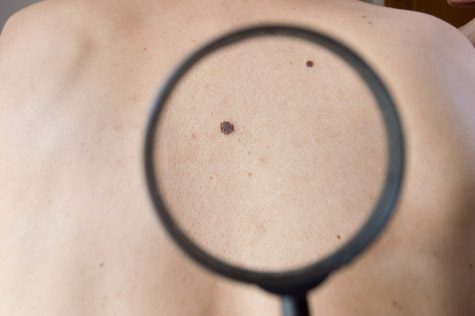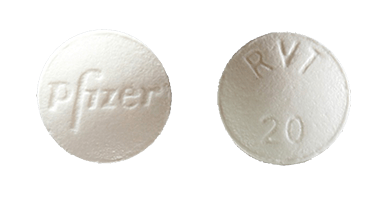Viagra
Commonly known as “the little blue pill,” Viagra has raked in billions for pharmaceutical giant Pfizer since its 1998 release. But the erectile dysfunction drug has links to serious side effects, including vision and hearing loss, heart complications and melanoma.
Our content is developed and backed by respected legal, medical and scientific experts. More than 30 contributors, including product liability attorneys and board-certified physicians, have reviewed our website to ensure it’s medically sound and legally accurate.
legal help when you need it most.
Drugwatch has provided people injured by harmful drugs and devices with reliable answers and experienced legal help since 2009. Brought to you by The Wilson Firm LLP, we've pursued justice for more than 20,000 families and secured $324 million in settlements and verdicts against negligent manufacturers.
More than 30 contributors, including mass tort attorneys and board-certified doctors, have reviewed our website and added their unique perspectives to ensure you get the most updated and highest quality information.
Drugwatch.com is AACI-certified as a trusted medical content website and is produced by lawyers, a patient advocate and award-winning journalists whose affiliations include the American Bar Association and the American Medical Writers Association.
About Drugwatch.com
- 15+ Years of Advocacy
- $324 Million Recovered for Clients
- 20,000 Families Helped
- A+ BBB Rating
- 4.9 Stars from Google Reviews
Testimonials
I found Drugwatch to be very helpful with finding the right lawyers. We had the opportunity to share our story as well, so that more people can be aware of NEC. We are forever grateful for them.
- Medically reviewed by Laura Koppen, Pharm.D., BCPS
- Last update: December 1, 2025
- Est. Read Time: 8 min read
In 1998, the U.S. Food and Drug Administration (FDA) approved Viagra (sildenafil) for prescription use in men with erectile dysfunction (or impotence). Pharmaceutical giant Pfizer originally developed and studied the medication as an anti-hypertensive drug to treat high blood pressure as well as a type of cardiovascular disease called angina pectoris, in which the heart does not receive sufficient oxygen and blood. While that effort failed, chemists at Pfizer found that the drug was capable of inducing penile erections within 30 to 60 minutes of use.

Pfizer saw an economic advantage with this new discovery and experienced immediate success with Viagra, accumulating about a billion dollars in sales in its first year alone. In 2014, Fox News reported that “over 30 million men suffer from erectile dysfunction,” and it is estimated that approximately 20 million Americans have taken Viagra. Men’s Health reported around the same time that during the last two or three decades, ED rates have gone up, especially among younger men. The Journal of Sexual Medicine published results from one study that showed that “one out of every four new ED patients is under 40 years old.”
In 2016, the FDA approved the first-ever generic version of Viagra to be manufactured and distributed by Teva, a Pennsylvania-based pharmaceutical company. The drugs entered the market in December 2017.
Experts have linked Viagra to some serious side effects affecting the eyes, ears, penis, heart and blood vessels. A 2014 study published in JAMA Internal Medicine also points to a possible link between the use of sildenafil (the active ingredient in Viagra) and melanoma, the most dangerous form of skin cancer. However, the significance of this link is still unclear.
How Does Viagra Work?
Viagra is an oral medication used to treat erectile dysfunction (ED) in men. An erection occurs when blood flow increases into the penis, making it expand and become firm. Two long chambers inside the penis, called the corpora cavernosa, contain spongy tissue that collects blood flowing into the chambers, creating pressure that results in the expansion of the penis.
Viagra blocks certain naturally occurring enzymes in the body, causing blood vessels to relax and enhancing blood flow to the penis. Viagra does not automatically cause an erection; rather, it assists a man with ED in obtaining and keeping an erection when sexually aroused or stimulated.
Sildenafil for Pulmonary Arterial Hypertension (PAH)
The active ingredient in Viagra can treat other disorders. Doctors prescribe Revatio (sildenafil) for adults with pulmonary arterial hypertension (PAH). PAH is a progressive, life-threatening disorder that causes abnormally high blood pressure in the pulmonary artery, which is the blood vessel responsible for carrying blood from the heart to the lungs. Revatio works to improve a patient’s ability to exercise and slow down the progression and worsening of the disease. Signs and symptoms of this serious health condition can include shortness of breath when active, fainting spells, dizziness, swelling of the ankles or legs, chest pain and a rapid heart rate.
What Is Erectile Dysfunction (ED)?
The National Institutes of Health (NIH) defines erectile dysfunction as “a condition in which a man is unable to get or keep an erection firm enough for sexual intercourse.” Signs of erectile dysfunction (ED), sometimes referred to as impotence, may include the ability to get an erection sometimes but not every time, the ability to get an erection that does not last long enough to engage in sexual intercourse or the inability to get an erection at any time. Physical causes for the condition can include nerve damage, artery damage or damage to the smooth muscles and fibrous tissues in the penis. Certain diseases and health complications can also lead to ED, such as high blood pressure and diabetes.
Psychological and emotional disorders, such as anxiety, depression and stress, can cause or exacerbate ED. Certain lifestyle choices have an effect as well, such as an unhealthy diet, lack of exercise, drinking in excess and smoking. ED can also be a potential side effect when taking certain medications, including those used to treat blood pressure, allergies, depression and ulcers.
Complications of the condition can result in an unfulfilled sex life, emotional problems — such as depression and anxiety — a loss of intimacy with a partner, a strained relationship and the inability to get a partner pregnant.
Administration and Dosages of Viagra
Patients take Viagra by mouth as prescribed and as needed for erectile dysfunction (ED). Modern online services make it easy for individuals to obtain prescriptions and buy Viagra or other erectile dysfunction medications online. Individuals should not take Viagra more than once a day, or more than once every 24 hours. Pfizer supplies Viagra as a blue, film-coated, rounded-diamond-shaped tablet. It comes in three different strengths, including 25, 50 and 100 milligrams.
Doctors can adjust the dosage as needed for effectiveness and tolerability. Patients may take Viagra anywhere from 30 minutes to four hours before engaging in sexual intercourse.
People can take this medication with or without food. However, if someone takes Viagra with a high-fat meal, it will take longer for its effects to work.
- CYP3A4 Inhibitors
- Experts recommend a starting dose of 25 milligrams for patients being treated with strong CYP3A4 inhibitors, including certain anti-infective medications such as ketoconazole, itraconazole, saquinavir and erythromycin. CYP3A4 is an important enzyme in the body, mainly found in the intestines and liver. Clinical data showed that patients taking saquinavir or erythromycin in conjunction with Viagra had significantly increased levels of Viagra’s active ingredient, sildenafil, in their blood.
- Ritonavir
- In patients taking ritonavir (brand name Norvir), an antiretroviral medication used alongside other drugs to treat HIV/AIDS, the recommended maximum dose of Viagra should not exceed 25 milligrams in a 48-hour period.
- Alpha-Blockers
- A starting dose of 25 milligrams is recommended for patients being treated with alpha-blocker medications. Doctors prescribe alpha-blocker medications, such as terazosin and doxazosin, to treat high blood pressure and a condition called benign prostatic hypertrophy (BPH), where the prostate is enlarged. Viagra and alpha-blocker medications can both lower blood pressure, so taking Viagra with alpha-blocker medications can result in hypotension.
- Other Health Conditions
- Experts also recommend a starting dose of 25 milligrams for patients who are 65 years of age or older, have liver impairment (cirrhosis) or suffer from severe kidney impairment.
Revatio Dosing for PAH
Sildenafil taken in the form of Revatio is a liquid administered orally with a syringe. It can also come in the form of a tablet. The recommended dose of Revatio is five or 20 milligrams taken three times a day, about four to six hours apart. As of 2022, Revatio injections are also available for the continued treatment of patients with PAH who are prescribed the medication in an oral form but are temporarily unable to take oral medications.
Side Effects of Viagra
Viagra can cause some serious side effects. These can include an erection that will not go away (priapism), sudden vision loss in one or both eyes and sudden hearing decrease or hearing loss. Some men have also experienced heart attacks, strokes, irregular heartbeats and even death after taking Viagra. Most, but not all, of these men were found to have had heart problems prior to taking Viagra. It is unknown if Viagra caused or exacerbated these problems.
- Priapism
- This is a condition that involves an erection lasting for several hours, typically more than four hours, without stimulation or after stimulation has ended. If not immediately treated, priapism can result in permanent damage to the penis.
- Sudden Vision Loss
- This can be a sign of a serious eye problem called non-arteritic anterior ischemic optic neuropathy (or NAION). This condition is due to impaired circulation of blood to the front of the optic nerve. The vision loss remains fairly stable once it has occurred, without any real noticeable improvement or worsening.
- Sudden Hearing Loss
- Individuals may also experience this as tinnitus (ringing in the ears), and it may be accompanied by dizziness.
- Abnormal vision, such as changes in color vision (like a blue color tinge) and blurred vision
- Back pain
- Dizziness
- Flushing (feeling of warmth)
- Headache
- Muscle pain
- Nausea
- Rash
- Stuffy or runny nose
- Upset stomach
Other side effects associated with the use of sildenafil may include diarrhea, heartburn, difficulty falling asleep or staying asleep, numbness, burning or tingling in the arms, hands, feet or legs, nosebleeds and sensitivity to light.
Viagra and Melanoma (Skin Cancer)
In 2014, a study published in JAMA Internal Medicine found that men who used Viagra were 84 percent more likely to develop melanoma, the most dangerous form of skin cancer, over a period of 10 years. However, former executive editor of Harvard Men’s Health Watch, Daniel Pendick, said that this study merely showed a connection between men taking Viagra and the later diagnosis of melanoma, and not that Viagra is a definitive cause of the development of skin cancer.

Dr. Hensin Tsao of Massachusetts General Hospital, who is considered an expert in melanoma and skin cancer risk, shared his thoughts with Harvard Health Publications, stating that the study “warrants more careful replication” and that “several factors need to be considered.” However, the 2014 JAMA publication also describes a biological response to sildenafil (the active ingredient in Viagra) that increases the invasiveness of melanoma cells. Accordingly, the study concluded that this may indicate a heightened risk of the development of melanoma in patients using sildenafil.
While the study authors stated that the data from their study were “insufficient to alter clinical recommendations,” they also noted the importance of continued investigation. A few follow-up studies have examined the potential risk of melanoma more closely. Some of these studies found an increased risk of melanoma among patients who used Viagra (or other similar drugs), but other studies did not find a significant connection between Viagra use and melanoma. None of these studies showed that Viagra is a true cause of melanoma.
FDA Safety Communication: Revatio (sildenafil)
In 2012, the U.S. Food and Drug Administration (FDA) advised that doctors should not prescribe Revatio (sildenafil) to children aged 1 through 17 for pulmonary arterial hypertension (PAH). This recommendation came after a long-term pediatric clinical trial that showed that children taking a high dose of Revatio had a higher risk of death than children taking low doses, and that the lower doses of Revatio were not effective in improving exercise ability.

The FDA found that most of the deaths that occurred in children taking Revatio were caused by pulmonary hypertension, a broader health condition including PAH, and heart failure. These are among the most common causes of death in children with PAH. The FDA never approved Revatio for use in children, and following the new information from the clinical trial, off-label use (use not indicated or approved by the FDA) of the drug in pediatric patients was discouraged. The FDA required Pfizer to add these findings to a new drug label for Revatio.
In 2014, the FDA issued an update and clarification of its earlier recommendation. The FDA stated that the purpose of its prior communication was simply to raise awareness as to the higher risk of death in pediatric patients, but the recommendation “was not intended to suggest that Revatio should never be used in children.” The FDA concluded that it was up to health care professionals to consider whether the benefits of treatment are likely to outweigh the potential risks to their patients.
The federal agency confirmed that while the evidence behind its initial recommendation had not changed, the 2014 update was more of a clarification as to the “strength of the warning” included on the Revatio drug label.
- Also take medicines called nitrates (such as nitroglycerin), used to treat high blood pressure during surgery and for certain heart conditions
- Use street drugs called “poppers” (such as amyl nitrite and butyl nitrite)
- Take any medicines called guanylate cyclase stimulators, such as riociguat (Adempas), which treat two types of pulmonary hypertension in adults
- Have had allergic reactions to sildenafil, as contained in Viagra and Revatio, or any other ingredients in Viagra
Calling this number connects you with a Drugwatch.com representative. We will direct you to one of our trusted legal partners for a free case review.
Drugwatch.com's trusted legal partners support the organization's mission to keep people safe from dangerous drugs and medical devices. For more information, visit our partners page.




